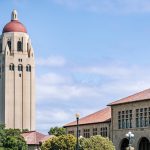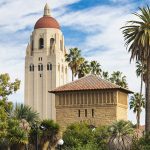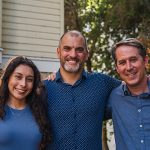In the first of a series, IPL grad student Thomas Ginn tells us about his journey to the field.
Duncan Lawrence: Welcome to IPL Origin Stories. Thomas, I’m looking forward to learning more about your background and how you came to be interested in immigration.
Where were you born, and what were things like for you growing up?
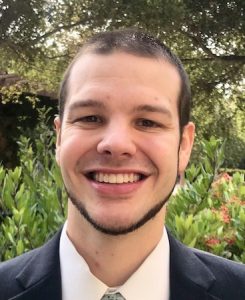
Thomas Ginn: I was born in Atlanta, Georgia, and my parents still live in the house I grew up in, so I didn’t have much personal experience with migration. We didn’t travel internationally, and I didn’t have a big picture view of the world or global issues at that point.
DL: And what was a perfect day for you when you were a kid?
TG: Playing baseball in the front yard and imagining myself as the first baseman for the Atlanta Braves, hitting a home run.
DL: And you’re still a Braves fan? Haven’t adopted the As or Giants?
TG: No, never. Once those allegiances are set, they’re not moving.
DL: And when you were in high school, what did you picture yourself doing?
TG: At first, I wasn’t sure, but things got clearer when I took my first trip abroad, to China, during my Sophomore year. That’s when I started thinking the international space was where I wanted to go. My dad was in business, so I could see myself in international business, and I went to undergrad thinking I’d eventually look at business schools.
DL: Tell me about your trip to China. Had you studied Chinese?
TG: It was part of the Chinese government’s cultural exchange program. The program brought an orchestra that I actually wasn’t a part of, but they needed a trombone player. So I got a mostly subsidized trip to Beijing, playing things like the score from Lord of the Ringsand Pirates of the Caribbeanand a bunch of other Western songs.
I wasn’t a stellar trombone player, but I was in the right place at the right time, and that has pretty much been my story ever since.
DL: Lots of people at IPL are either immigrants themselves or have spent time living in other countries. Tell me about the places where you’ve lived.
TG: During college, I became very interested in development economics. Part of that, I thought, would mean living abroad and gaining direct experience in the developing world.
Right after undergrad, I worked for Innovation for Poverty Action in Busia, Kenya. It’s a rural, small town with one paved street, and I lived there for two years while working on projects with Pascaline Dupas, who’s my current advisor in the Stanford economics department. That experience threw me into the fire and let me see what development really looks like.
DL: What prompted that switch from business to development?
TG: During my first economics class, I really fell in love with the field—I had decided by day three of that course that I wanted to get a PhD in economics. Meanwhile, accounting was not the most dynamic subject matter. Economics seemed like such an interesting way to explain the world, how people interact, and maybe how to improve things. It was a pretty easy decision.
DL: Imagine you’re telling a story about your time abroad to undergrads in a class you’re teaching, say an Introduction to Development course. What would that story be?
TG: I knew it was important be open-minded about the cultural differences and conscious of the power dynamic inherent in development work. But it really is so important to check the savior complex at the door and acknowledge the agency of the communities we’re living and working in.
That really became clear to me during one particular project where we were studying the long-term impact of programs educating people about sexual health. Part of that involved taking blood samples to test people for HIV and genital herpes.
Going into the project, I might have thought that people would be happy to have us there and appreciate the research and testing we were doing. But it was definitely more complicated than that. People are naturally skeptical, and for good reason. So we had multiple scares when rumors spread around the community about what was going on with the blood samples. We had to pause the project for a while and do much more community outreach.
There are lots of stories like that. I think of the Congo, where colonialism still affects health practices and trust. When the international community tries to come in and stop the spread of Ebola, the lack of connections and trust with the local community is a major barrier.
It’s important not to assume that you’ll be welcomed just because you’re trying to help. It’s a burden that should fall on the researchers, who are often from other cultures, and we should invest in explaining what we’re doing both because it’s ethical and will make the project better.
DL: You said your parents were mostly homebodies. Did you ever get them to come visit while you were doing field work?
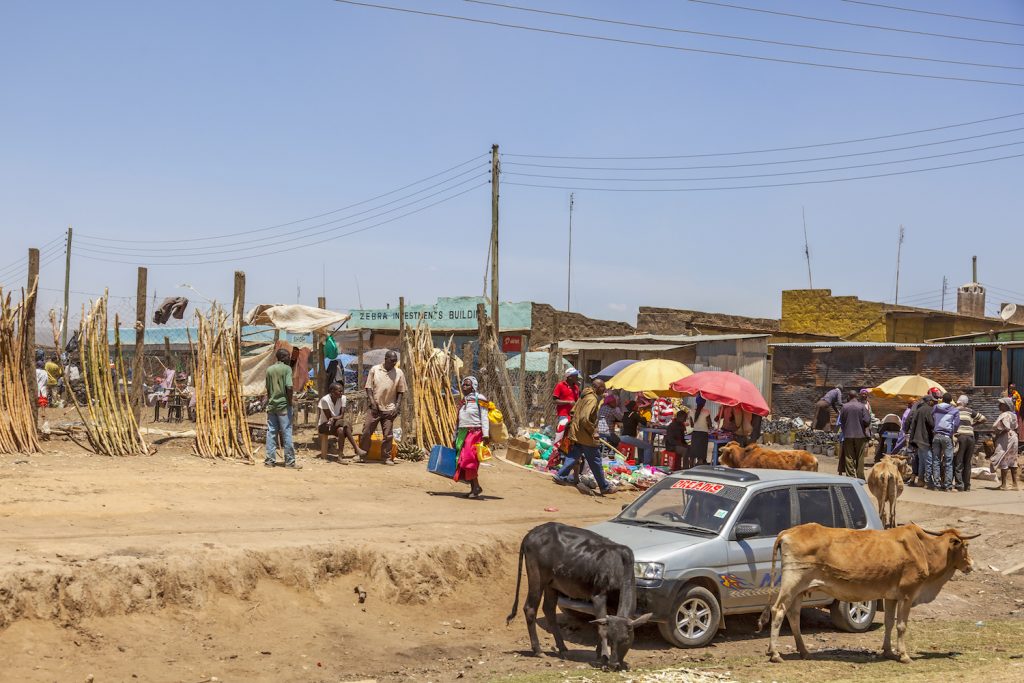
TG: Yes, and it was my dad’s second-ever trip out of the United States. The first night we stayed at a fancy hotel in Nairobi, with the whole safari package. They won’t let me forget that our first meal was Ethiopian food, which we ate with our hands while sitting on the floor—not how they had imagined being welcomed.
And after that they came out to Busia, where I lived. They saw the other side of Kenya, where most people live and completely off the tourist route. My proudest moment of the trip was when my mom said, “I wouldn’t do this, but now I can see why you would.”
DL: I’m always curious about people’s evolution during graduate school, which can be a long and sometimes arduous journey. Along the way to getting your PhD in economics—congratulations!—did you come to view the world differently than when you started at Stanford? Or did you hold on to the beliefs you had at the beginning?
TG: A combination of both. One of my takeaways from living in Kenya was a better appreciation of my privileges as an American citizen. As I’d get to know my Kenyan colleagues and people around the town, so often people would ask me how to get to the United States, and they’d describe their dream of immigrating. In exploring policy around development, immigration was the thing that rose to the surface in conversation after conversation.
So I came to Stanford really thinking about immigration as an issue I wanted to focus on. Conflict was another, and the intersection of the two was refugees. When I started talking to groups on campus, I realized that there just wasn’t a lot of empirical work on refugees, especially in the developing world, where 85 percent of refugees still live. So forced migration is where I saw a larger research gap.
DL: People sometimes ask for the two-minute version of your dissertation as you’d give it to your grandmother. I like to ask for the version you’d give a 10-year-old. How do you tell people outside your field what you’ve spent the past half-decade working on?
TG: The main focus was on the impacts of living in a refugee camp instead of living outside a camp, as some 70 percent of refugees do. A big concern is that camps can harm refugees’ ability to enter the labor market and provide for themselves as displacement becomes a long-term event. So the humanitarian community is trying to move away from camps because of this labor market concern.
I got the opportunity to work with the World Bank collecting data on Syrian refugees in Jordan, Iraq, and Lebanon, and so for my dissertation my focus shifted to the Middle East. Ultimately, I found that wages and employment do go down as a result of living in a camp, especially for men. But the decrease amounts to less than what the household saves for rent.
Camps as they’re currently constructed have a lot of other negatives that don’t necessarily need to be tied to the provision of shelter in kind—restrictions on movement as the most obvious. We can think about other ways to alleviate the rent burden on refugees, as well as the rent effects on the host communities. When 600,000 Syrians arrived in Jordan over the course of two years, preexisting issues in the housing market were exacerbated, and supply is simply not keeping up with demand. So looking at providing shelter in a way that doesn’t isolate is an area I want to push forward after Stanford.
DL: Taking all that you’ve learned, if you had a magic policy wand you could wave and implement anything at any scale, what would you do?
TG: I’d think about allowing more freedom of movement for people, not just those displaced by conflict but also those who are poor. Having to prove that you’re a victim of conflict is in some ways an unnecessary step in this whole process. Most people benefit, including the migrants and in the receiving communities, and we need to be conscientious about compensating those who are negatively affected.
I don’t mean that there should be no barriers—we’ve seen the political backlash that can happen, and having some controls over migration does matter. But in general, fewer barriers would allow people to migrate and find the best place to earn a living and contribute to society.
DL: Are there examples from developing countries or regions where you’ve seen freer movement, and how that might benefit refugees and migrants in general?
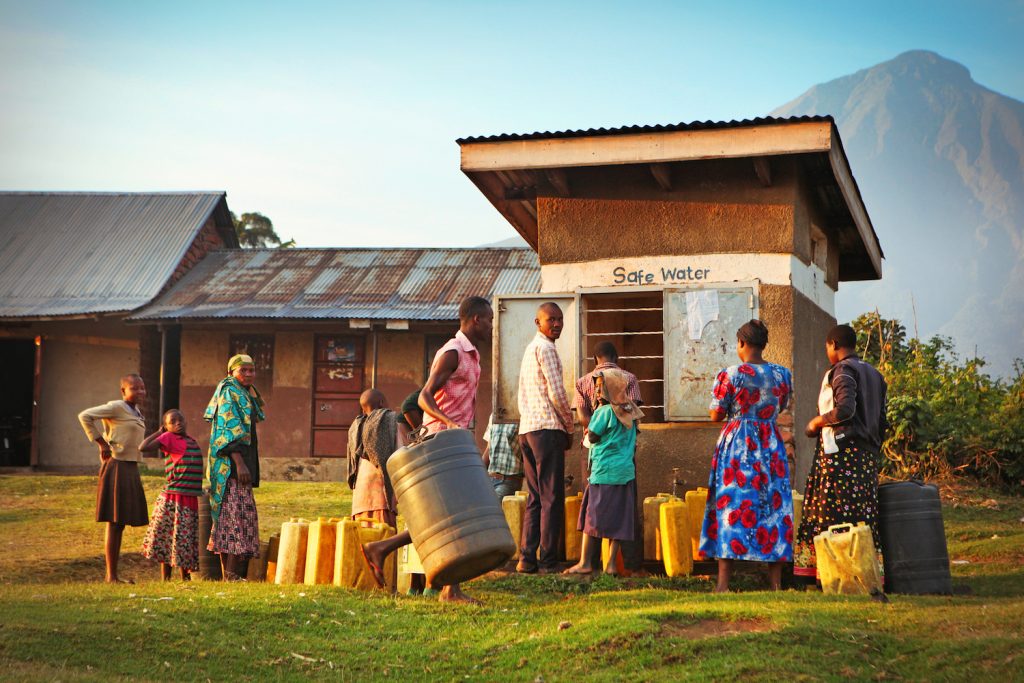
TG: Uganda is a global model citizen for hosting refugees. It’s the largest host country in Africa, hosting refugees mostly from the Congo and South Sudan, and keeps the borders open for more. Faced with this massive influx, Uganda has established settlements where refugees are given plots of land and temporary food provisions. But they’re also allowed to leave those settlements to move to places like the capital city, Kampala, and to figure out the location that is best for them.
So it’s a great example of a welcoming refugee policy, and the negative effects on the host community are limited. And at least 30 percent of assistance for refugees must go to Ugandans, so in those situations where the host community does get crowded out initially, they’re hopefully also benefiting from new assistance.
DL: You’re about to start working with a really great group of people at the Center for Global Development in Washington, DC. What are you most looking forward to, and do you have any exciting projects teed up?
TG: I’m really excited about the opportunity to work with both policymakers and academics. The team at CGD is fantastic, and I’ll have a ton to learn from them. CGD’s overall goal to bridge rigorous research with policy influence is exactly why I joined this field, and I’m excited to contribute as much as I can.
One project I’m starting is looking at the model in Uganda, where refugees have the right to work in exchange for assistance going to Ugandans. We’re looking at whether assistance that’s associated with refugees can influence attitudes toward immigration. Generally, I think we know more about the first-order economics questions—returns to migration are often high, the crowd out of natives is often minimal, and so on—than about the political questions, like how attitudes develop. And these political questions are, of course, the ones driving migration policy globally.
So the basic idea in Uganda is to experiment with cash transfers through the refugee system, to offset any issues the host communities perceives as connected to refugees, and see if perceptions towards refugees change. Immigration attitudes have proven very sticky, but we want to find out whether programming can make a difference.
DL: Thank you, Thomas, for sharing your story. We look forward to your continued work.
TG: Thanks for having me.


